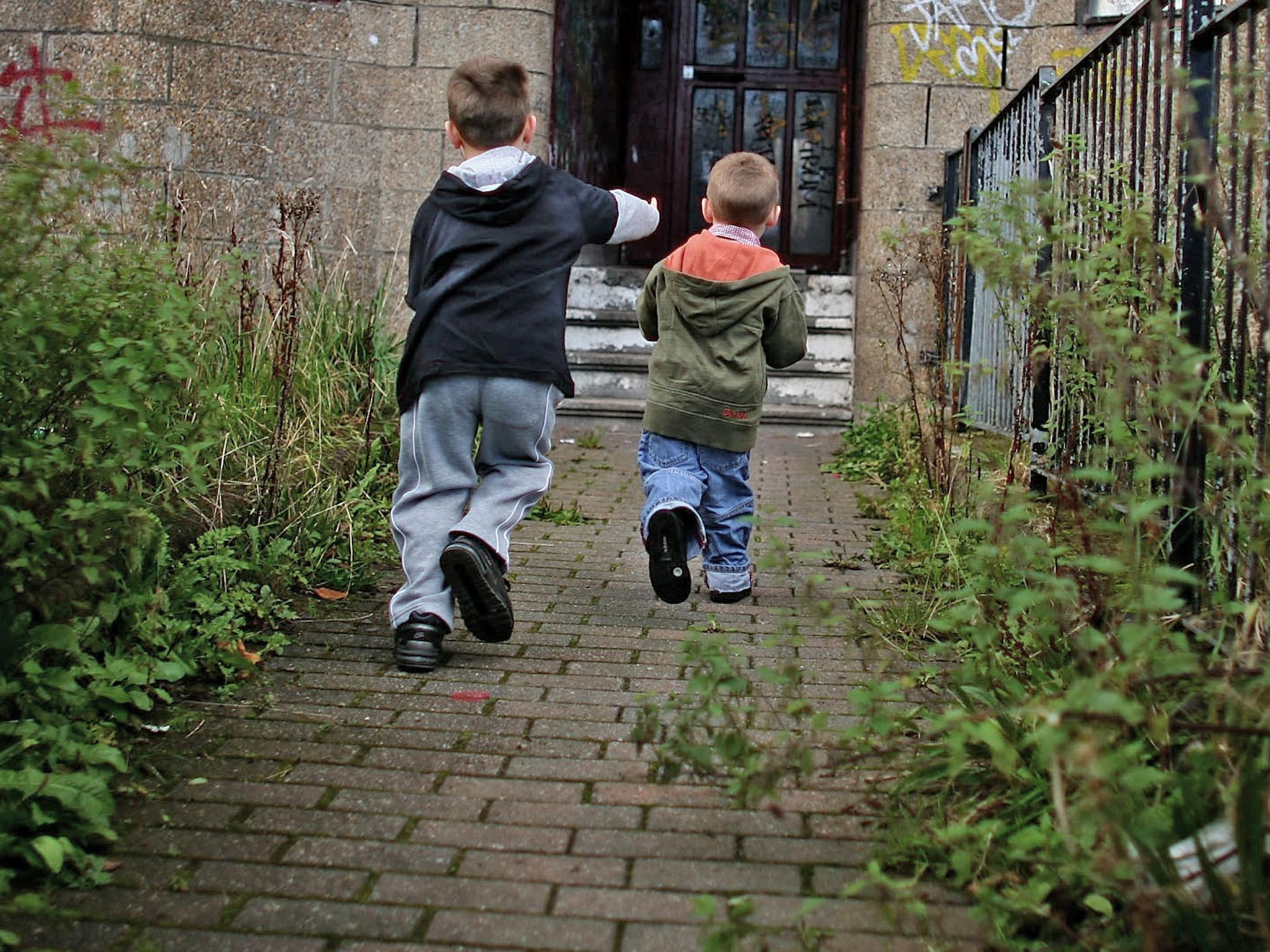Majority of British children will soon be growing up in families struggling 'below the breadline', Government warned

The majority of British children will soon be growing up in families which are struggling “below the breadline” because of welfare cuts, tax rises and wage freezes, the Government is warned today.
Within two years, almost 7.1m of the nation’s 13m youngsters will be in homes with incomes judged to be less than the minimum necessary for a decent standard of living, according to a new report.
The figures, which emerged a week ahead of George Osborne’s Budget, suggest that an unwanted legacy of the Coalition’s squeeze on spending will be to leave more children living close to poverty.
They coincide with a new survey for the Resolution Foundation think-tank, which found that almost seven in ten of people believe the Government does not understand the financial strains they face.
The impact on children of the economic downturn and austerity measures was underlined by an analysis that concluded that the number of under-18s living in households below minimum income standards would increase by 690,000 between 2010 and 2015. The definitions of acceptable living standards are drawn up by the respected charity, the Joseph Rowntree Foundation.
Today’s report said 460,000 children would be pushed below those levels by the increase in VAT and cuts to tax credits, 170,000 by sluggish wage growth and 80,000 by the curbs on public sector pay. Just 20,000 would be raised above the minimum level by the new Universal Credit system, which begins to come into force in October.
The TUC, which commissioned the research by the economist Howard Reed, said the figures should “shame” any civilised society and challenged Mr Osborne to cut VAT to ease the pressures on the lowest income families.
By 2015, a lone parent with one child is calculated to require an annual income of £19,226 to have a decent standard of living, rising to £23,992 for a lone parent with two children, £24,643 for a couple with one child and £29,093 if they have two children. But Mr Reed calculated that 54 per cent of youngsters will be living in households with income below those levels in two years’ time.
His report concluded that 90 per cent of families will be worse off in 2015 than in 2010.
Only the poorest ten per cent will be better-off – and then by £29.60 a year, or 57p a week. The boost they received from raising tax thresholds has been virtually wiped out by the increase in VAT to 20 per cent in 2011.
Frances O’Grady, the TUC general secretary, said: “Families are suffering the tightest squeeze in living standards in nearly a century. On top of wages that do not keep up with prices, government policies are making life even more miserable for millions of low to middle-income families through tax increases and cuts in benefits and tax credits.
“By the 2015 election, the majority of children in Britain will be living below the breadline. For any civilised society, that should be shaming.”
The Department of Work and Pensions accused the TUC of choosing an “arbitrary measure to support their own point of view”. A spokesman said the Government was committed to eradicating child poverty by tackling its root causes including unemployment, educational failure and family breakdown.
He added: “Our welfare reforms will improve the lives of some of the poorest families in our communities, with the Universal Credit making three million people better off. And by next year, we will have taken two million of the lowest earners out of paying tax altogether."
In the Resolution Foundation poll, 69 per cent of people thought the Government did not understand the “financial pressures” they and their families were experiencing. The sentiment was shared across all income and class brackets in the poll conducted by Ipsos MORI.
Just 19 per cent said they believed ministers appreciated the pressures they were under.
Vidhya Alakeson, the foundation’s deputy chief executive, said: “Faltering prosperity is a key issue not only for the government of the day but for all political parties as we approach an election in two years’ time.
The TUC will stage a pre-Budget rally today at which it will urge the Chancellor to focus on jobs, growth and family next week.
Dave Prentis, the general secretary of Unison, will tell the gathering: “Austerity is OK if you are rich. It’s OK if you are one of the 13,000 millionaires in this country because austerity means you get richer. That’s because if you are rich, you’re in line for an extra £100,000 tax break, taken from the pockets of the poor.”
Join our commenting forum
Join thought-provoking conversations, follow other Independent readers and see their replies
Comments